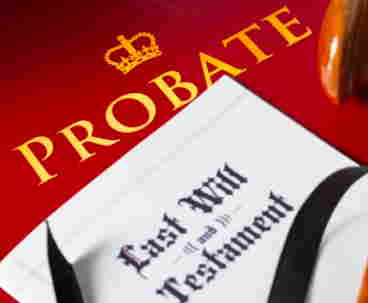What happens when you file a claim against a probated estate?
Making a claim against the estate of the deceased individual may allow you to recover the debt from them.
To get the money you’re due from a deceased person’s estate, you must submit a claim against their estate. The steps are straightforward, although they differ depending on where you are. To make sure you adhere to the rules and submit your claim on time, you might need to conduct some study or seek legal counsel.
The probate process
A deceased person’s possessions are inventoried, creditors are paid, and then the residual assets are distributed to the beneficiaries of a will or to the person’s legitimate heirs in the absence of a will. This process is known as probate. The probate court in the area where the dead lived oversees the probate procedure.
Some assets are exempt from the probate procedure. Retirement savings, for instance, may be transferred straight to the beneficiaries, and living trusts may be used to completely bypass probate. However, the only legal method for transferring ownership of certain assets to heirs and beneficiaries is through probate.
In order to appoint an executor if there is a will or an administrator if there is none, a petition must be filed in probate court. This individual, often referred to as a personal representative, is in charge of compiling a list of the property included in the probate estate, informing beneficiaries and creditors, and paying the bills, taxes, and burial costs of the deceased. Distribution of inheritances to heirs and beneficiaries is the last phase.
Normally, the full probate procedure lasts between eight and twelve months. A straightforward estate often goes through probate quicker than a complicated one.
How to file a claim against an estate
A formal demand for the estate to pay money the decedent owes is known as a claim against the estate. varied states have slightly varied processes for informing creditors and making a claim against an estate since probate rules vary from one state to the next.
The personal representative typically announces the estate is being probated through a newspaper notice. To inform creditors who might seek to file a claim against the estate, the representative may also post a notice. Representatives may also mail a notification to known creditors in various states.
Ideally, you shouldn’t rely on these alerts to inform you that you need to submit a claim. You might never receive a notification by mail, and newspaper notices are hidden in small type.
If you know that someone who owes you money has passed away, find out if an estate is being probated by contacting the probate court in the county where the decedent resided.
If a case has been filed, the court can provide you with the case number and let you know if a claim form is available.
Filing a claim against an estate is a fairly simple process:
- You will swear in the claim that the debt is due, and you will specify the debt’s amount and any payments the decedent made.
- You can affix textual evidence to your claim if you have it.
- You must provide a copy of the claim to the personal representative as well as to the probate court when you file your claim.
The amount of time you have to assert a claim against an estate is governed by state law. If you submit a claim after the deadline, it can be denied. Consult a lawyer if you’re unaware of how to file a claim or the deadlines involved. If your claim is rejected, a lawyer can also clarify your choices to you.
Your claim should be paid if the estate has adequate assets to do so before the money is given to heirs. If not enough money is available to satisfy all creditors, claims will be paid according to priority. Assets passing outside of probate cannot normally be used to settle claims against the probated estate; only assets subject to probate can.
Your claim should be paid if the estate has adequate assets to do so before the money is given to heirs. In the event that not all creditors are able to be paid, claims will be paid according to priority. Assets passing outside of probate cannot normally be used to settle claims against the probated estate; only assets subject to probate can.

